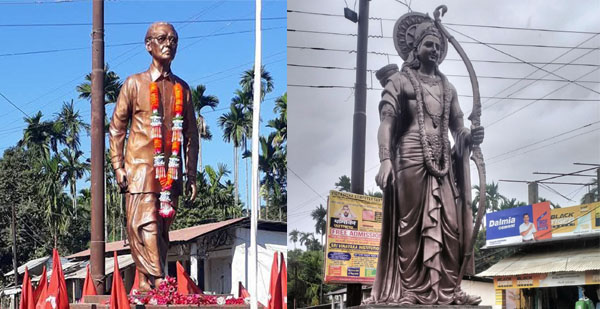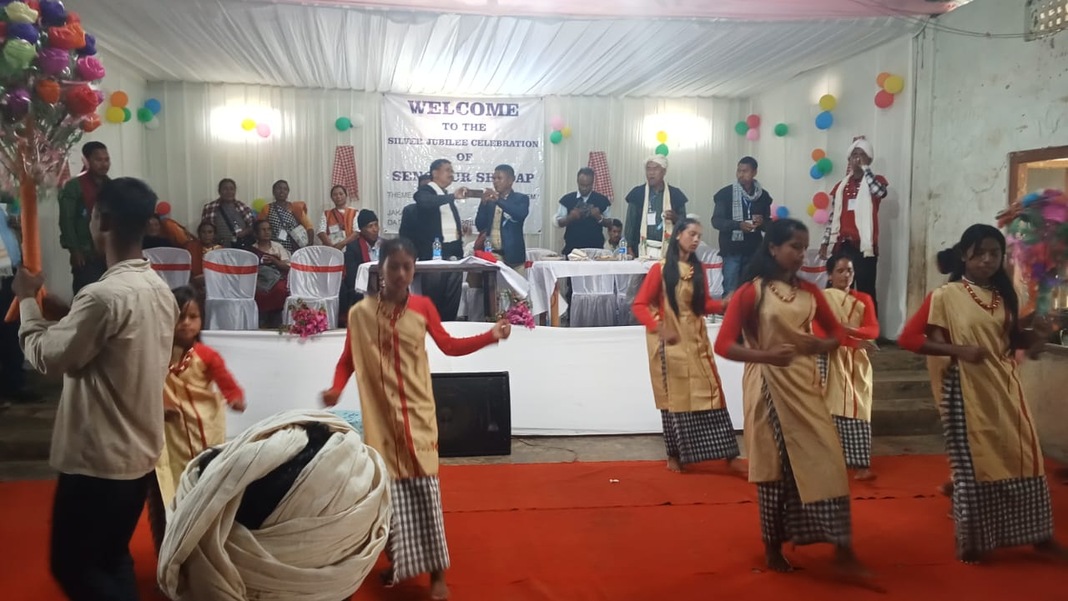
Guwahati, April 12: All India United Democratic Front (AIUDF) president and former MP Maulana Badruddin Ajmal sharply criticized Assam Chief Minister Himanta Biswa Sarma over his comments on the Waqf Amendment Bill 2025 and the scale of protests in Assam.
Reacting to a post made by the chief minister on X (formerly Twitter), Ajmal questioned whether Sarma was attempting to provoke the state’s 40% Muslim population into a ‘violent movement’ over the controversial legislation.
On Friday, CM Sarma had written: “Despite having nearly 40% Muslim population, Assam has remained peaceful today except for isolated protests in three places involving not more than 150 participants each against the Waqf Amendment Act. My compliments to @AssamPolice for their extensive groundwork that helped maintain calm and order. People across Assam—irrespective of caste, creed, community, or religion—are united in spirit and eagerly preparing to welcome our beloved Bohag Bihu with joy and harmony.”
In a strong rebuttal, Ajmal accused the chief minister of undermining the widespread democratic dissent that has taken place in Assam and across India.
“A cross-section of people, including Hindus and Muslims, have protested against the Waqf Amendment Bill 2025. The BJP-led NDA government passed the Bill despite strong opposition,” Ajmal said in a press statement.
He added that protests in Assam were far more widespread than the CM acknowledged, citing participation from various political parties and organizations such as Jamiat Ulema-e-Hind.
“It’s not just three places. Many have gone to court against this Bill. Our people still have full faith in the judiciary and believe that justice will prevail,” Ajmal said.
The AIUDF leader emphasized that the Muslim community in Assam has always believed in peaceful, democratic protest, even in the face of what he called ‘disrespectful dismissals’ by the political leadership.

“Since Independence, Muslims have believed in non-violence. Our movement is peaceful and principled. But the way the CM framed it raises serious concerns. Is he trying to instigate unrest by minimizing legitimate protest?” he questioned.
The Waqf Amendment Bill 2025, passed recently by the Parliament, has triggered protests across India, especially among minority communities and rights groups, who allege that the bill undermines the autonomy of Waqf boards, and is part of a larger agenda to erode minority institutional rights.
In Assam, where Muslims constitute roughly 40% of the population, the issue has gained added significance. Protesters have argued that the amendment centralizes control, weakens community representation in Waqf property management, and paves the way for potential misuse of religious land.
The Assam Police have been deployed in sensitive areas, and the state government has downplayed the scale of public backlash. Sarma’s claim that the protests were “isolated” has now become a fresh flashpoint in the ongoing political and communal discourse.
Ajmal’s remarks signal a deepening divide between the AIUDF and the ruling BJP in Assam, with both sides accusing each other of polarization and misrepresentation of facts. His warning—subtle but serious—hints at potential unrest if people feel that peaceful, democratic voices are being ignored or undermined.
“We trust democracy and the judiciary,” Ajmal reiterated, “but let it be clear—ignoring legitimate protest and belittling communities will not help preserve peace.”





